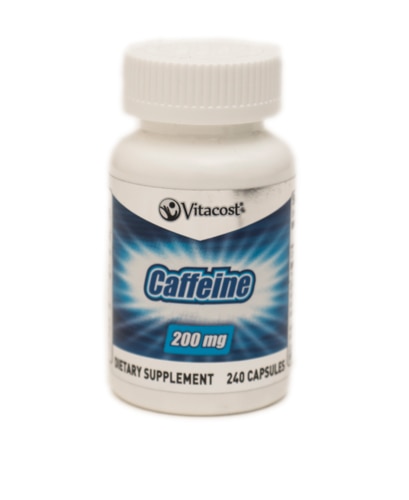 Although an all-nighter may seem to be an efficient way to study for an exam or meet a project deadline, the facts tell another story. Research has shown that the majority of those who study all night tend to have lower GPAs than their well-rested peers. Sleep deprivation has other consequences as well, such as increased risk of academic failure, compromised learning, impaired mood, depression, poor judgment, irritability and increased risk of motor vehicle accidents.
And all-nighters are pervasive amongst students. It seems. According to a study done at an Architecture School in the Midwest, only 4 percent of students obtained at least 7 hours of sleep at night; the average sleep duration was 5.7 hours, with 2.7 all-nighters per month. Eighty-two percent of the college students who took part in the study felt their school performance was impacted by inadequate sleep. Sleep problems ranked second only to stress in terms of the most likely suspect to derail academic performance.
So what happens to your brain when you skip a night of sleep?
Many experts say that the brain loses efficiency with each hour of sleep deprivation. One of the biggest tolls losing a night of sleep has is on working memory. When we cram, our brains only use short-term memory. But to retain information for any length of time, we need to utilize our long-term memory. Information that comes in quick leaves just as quickly. Too much information too fast doesn’t allow the information to assimilate; instead it gets rapidly extinguished. Sleeping helps both with assimilation and with memory consolidation.
Another problem with studying all night: The brain becomes weary as the day progresses. Our capacity to learn and memorize shines brightest in the morning, which is when peak cognitive efficiency occurs.
How to optimize your study habits:
Chunk up your studying, rather than doing it all last minute. One approach to try is studying in small chunks (20 to 30 minutes), multiple times per day, three to four days in advance of the test. The repetition of information allows your brain to move those facts to long-term memory, which makes for better—and longer—recall.
But if you do pull an all-nighter, here’s how to help your body and brain recover:
Sleep in. Catch up on sleep by making it up as soon as possible. Go to bed early for a few nights after your all-nighter and let yourself sleep in as late as possible till you naturally wake up.
Nap strategically. A 15-20 minute nap can boost your alertness for several hours after you wake up. Some studies show that napping may improve certain memory tasks.
Caffeinate carefully. If used with moderation, 400 milligrams or less, caffeine can help with focus and concentration. But it works better spread through the day in small doses than consuming a large amount at once.
On a general note, college students are prone to several poor sleep habits. They tend to use alcohol before bed, and sometimes even as a sleep aid, which although it can help you fall asleep leads to fragmented sleep in the later part of the night. The takeaway? If you want to sleep better, eschew alcohol.
Secondly, students are prone to abuse energy drinks, or at least consume regularly, which may interfere with sleep quality. Keeping caffeine intake moderate works best for a regular sleep routine.
Thirdly, technology is a major culprit when it comes to impacting sleep. Computers, tablets and cell phones emit a blue light that can suppress our body’s melatonin levels, delaying our natural inclination towards bedtime. For optimal sleep, it’s smart to power down an hour or two before bed.
Although an all-nighter may seem to be an efficient way to study for an exam or meet a project deadline, the facts tell another story. Research has shown that the majority of those who study all night tend to have lower GPAs than their well-rested peers. Sleep deprivation has other consequences as well, such as increased risk of academic failure, compromised learning, impaired mood, depression, poor judgment, irritability and increased risk of motor vehicle accidents.
And all-nighters are pervasive amongst students. It seems. According to a study done at an Architecture School in the Midwest, only 4 percent of students obtained at least 7 hours of sleep at night; the average sleep duration was 5.7 hours, with 2.7 all-nighters per month. Eighty-two percent of the college students who took part in the study felt their school performance was impacted by inadequate sleep. Sleep problems ranked second only to stress in terms of the most likely suspect to derail academic performance.
So what happens to your brain when you skip a night of sleep?
Many experts say that the brain loses efficiency with each hour of sleep deprivation. One of the biggest tolls losing a night of sleep has is on working memory. When we cram, our brains only use short-term memory. But to retain information for any length of time, we need to utilize our long-term memory. Information that comes in quick leaves just as quickly. Too much information too fast doesn’t allow the information to assimilate; instead it gets rapidly extinguished. Sleeping helps both with assimilation and with memory consolidation.
Another problem with studying all night: The brain becomes weary as the day progresses. Our capacity to learn and memorize shines brightest in the morning, which is when peak cognitive efficiency occurs.
How to optimize your study habits:
Chunk up your studying, rather than doing it all last minute. One approach to try is studying in small chunks (20 to 30 minutes), multiple times per day, three to four days in advance of the test. The repetition of information allows your brain to move those facts to long-term memory, which makes for better—and longer—recall.
But if you do pull an all-nighter, here’s how to help your body and brain recover:
Sleep in. Catch up on sleep by making it up as soon as possible. Go to bed early for a few nights after your all-nighter and let yourself sleep in as late as possible till you naturally wake up.
Nap strategically. A 15-20 minute nap can boost your alertness for several hours after you wake up. Some studies show that napping may improve certain memory tasks.
Caffeinate carefully. If used with moderation, 400 milligrams or less, caffeine can help with focus and concentration. But it works better spread through the day in small doses than consuming a large amount at once.
On a general note, college students are prone to several poor sleep habits. They tend to use alcohol before bed, and sometimes even as a sleep aid, which although it can help you fall asleep leads to fragmented sleep in the later part of the night. The takeaway? If you want to sleep better, eschew alcohol.
Secondly, students are prone to abuse energy drinks, or at least consume regularly, which may interfere with sleep quality. Keeping caffeine intake moderate works best for a regular sleep routine.
Thirdly, technology is a major culprit when it comes to impacting sleep. Computers, tablets and cell phones emit a blue light that can suppress our body’s melatonin levels, delaying our natural inclination towards bedtime. For optimal sleep, it’s smart to power down an hour or two before bed.
Vitacost Caffeine Description
Provides the energizing effects of caffeine without the added calories, sugar or hassle of consuming caffeinated beverages!
What is caffeine?
Caffeine is a bitter substance found naturally in the seeds, leaves and fruits of 60 different plants and trees. It’s also added to some foods and beverages.
Caffeine is most commonly consumed through drinking coffee, tea and soda. It’s estimated that 90 percent of adults worldwide use caffeine in some form and 80 to 90 percent of Americans consume it daily.
How does caffeine support health?
-
According to the National Institutes of Health, caffeine has many effects on the body’s metabolism, including stimulating the central nervous system.
-
Caffeine’s main effect is to increase alertness and provide an energy boost.
-
Caffeine is also a known diuretic that can cause the body to lose water.
Why choose Vitacost® Caffeine?
-
Supplies 200 mg of caffeine per single-capsule serving,
-
Provides the effects of caffeine without having to consume food or beverages.
-
Contains 240 servings per bottle.
-
Great value compared to other brands!
About Vitacost
Vitacost nutritional products are manufactured to high standards of quality, efficacy and safety. Each Vitacost product meets or exceeds the standards and requirements set forth in the FDA’s Code of Federal Regulation (21 CFR, 111) Current Good Manufacturing Practices (CGMP).
As a dietary supplement for adults 18 years of age and over, take 1 capsule daily or as directed by a healthcare professional.
Keep dry and at room temperature (59°-86°F [15°-30°C]).
*These statements have not been evaluated by the Food and Drug Administration. This product is not intended to diagnose, treat, cure, or prevent any disease.
| Amount Per Serving | % Daily Value | |
| Caffeine anhydrous | 200 mg | * |
Pregnant or lactating women, those with diabetes, hypolycemics, and people with known medical conditions and/or taking drugs should consult with a licensed physician and/or pharmacist prior to taking dietary supplements. Each serving contains as much caffeine as about 2 cups of coffee. Limit the use of caffeine-containing medications, foods or beverages while taking this product because too much caffeine may cause nervousness and occasionally rapid heartbeat. Do not give to children under 18 years of age. In case of accidental overdose, seek professional assistance or contact a poison control center immediately. Do not exceed 3 capsules per day. Keep out of reach of children.



